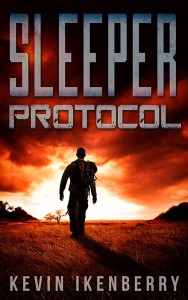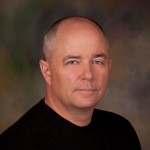If you have read anything by me on this blog before this post, you know I’m all about the unconventional way of doing things. What works for one person might not work for me, and similarly, what works for most people does not work for me. For example, I don’t write every day. I don’t make myself sit, ass to chair, for hours until something happens. If I couldn’t possibly force myself to write that day, I do something else, usually creative. Sometimes a week goes by and I haven’t brainstormed, written, or edited a single word. On the other side of that coin are some extremely productive spurts. I’ll write a novel in a month. I’ll write a short story in a day. I’ll outline an entire book in a week or less. You can probably deduce where I’m going with this. Absolutely stay true to this one thing, if nothing else: listen and obey what works for you.
What I propose is not an easy road. It requires you to be in-tune with yourself every day, and be honest with yourself. That means if you know you will not produce your best work today, then you might want to do other creative and important activities instead. That also means you should make yourself sit down, ass to chair, if you are perfectly capable of churning out prose but you just don’t feel like it. That’s where being honest with yourself comes in.
As an aside, what other creative things could you do instead?. Plenty. You may be stressed, tired, irritated. Try coloring, cooking, painting, even cleaning if that’s what will satisfy your brain and calm you down. If you sit and write and you’re rushing through every sentence to hit a word count, then what’s the point? Good work can’t be rushed, and if it is, it can’t be expected to be great work. It may even make more work for you in the end as you’re editing.
Ask yourself a series of questions to get an idea of how best you work.
- Do I work (not specifically writing) best in the morning or evening? When do I feel the most focused?
- Do I like to have people around when I write?
- Is silence best when I write? If not, do I prefer ambient noise or music?
- At what time durning the day do I start getting tired?
- Would I feel better if I got my writing in at the beginning of my day?
- Would I feel best if I wrote when my day concluded, all responsibilities done and taken care of?
- Have I noticed if my writing is more rushed or hurried if I am hungry, tired, or cold?
- Do I tend to nod off when I’m writing? What are the conditions (early morning, too warm, late at night)?
- When do I have the most energy in my day?
- Have I noticed a certain time of day where I do not feel like writing at all?
- Have I noticed a certain emotion that negatively affects my writing? A positive emotion that helps my writing flow better?
- Is there a month each year where I’m consistently not writing due to busyness or stress?
- After I write a novel or short story, do I prefer to have a time to let the writing rest before jumping right into editing? Do I need to jump right into editing to keep up the momentum?
- Under what conditions do I experience burnout?
- Are there activities in my life that are in direct odds with my writing and/or writing time?
- Do I like to think of work on a project-to-project basis or a day-to-day basis?
- Do I like to work on one piece of writing at a time or multiple pieces?
As you answer the questions, you might have some important realizations. If you still aren’t sure or can’t find a good time or season for writing, consider keeping a simple daily log of your writing time and note the time, how you feel, the room temperature, if you’re hungry/full/just right, any large stressors in your life at the time, and how you feel about your project right then. Feel free to add more things to note to the list. Over time, you’ll come across patterns in your writing times, what worked best, and certain things that bombed your working time.
Many writers have kept curious schedules throughout history. Henry Miller’s morning consisted of “if”s: “If groggy, type notes and allocate, as stimulus. If in fine fettle, write.” Ernest Hemingway, who wrote standing, said, “When I am working on a book or a story I write every morning as soon after first light as possible. There is no one to disturb you and it is cool or cold and you come to your work and warm as you write. You read what you have written and, as you always stop when you know what is going to happen next, you go on from there. You write until you come to a place where you still have your juice and know what will happen next and you stop and try to live through until the next day when you hit it again.” To read more about other famous writers’ routines, visit https://www.brainpickings.org/2012/11/20/daily-routines-writers/.

Also consider this graph of creative peoples’ routines in a 24-hour period. Note also that these schedules may have changed over time. Because the most important rule is and will always be: do what works for you.
While it can take weeks, months, or even years to nail down a routine that works for you, there’s something to be said for just jumping in. Once you’ve taken a personal inventory of your habits and routines, you may find a suitable writing time daily or a chunk of weeks in which to complete a project. It may not be perfect, but it doesn’t have to be. It will never be the perfect day or the perfect moment to write. The key is hitting a time that nearly is perfect, and running wild.



